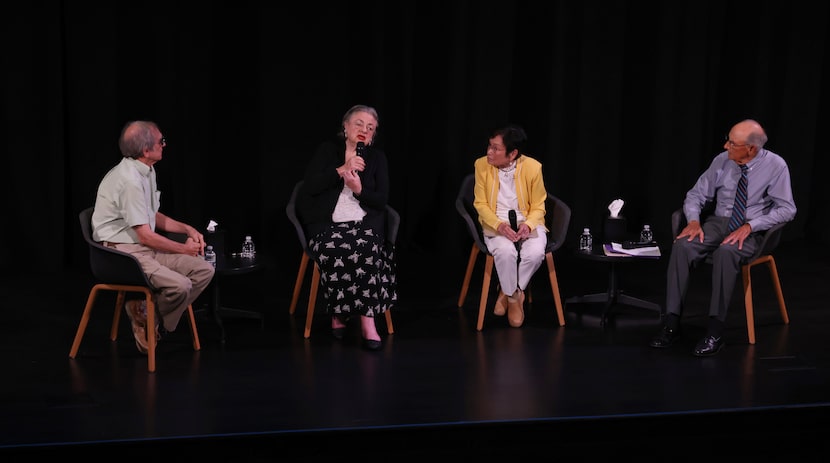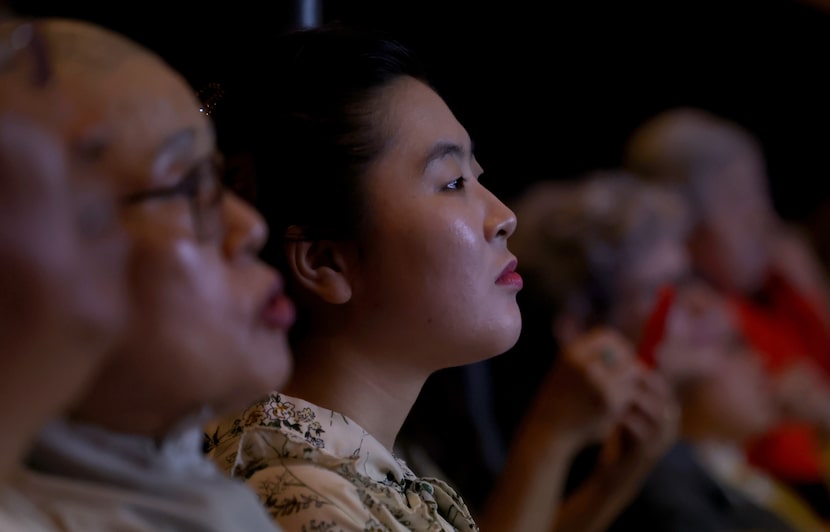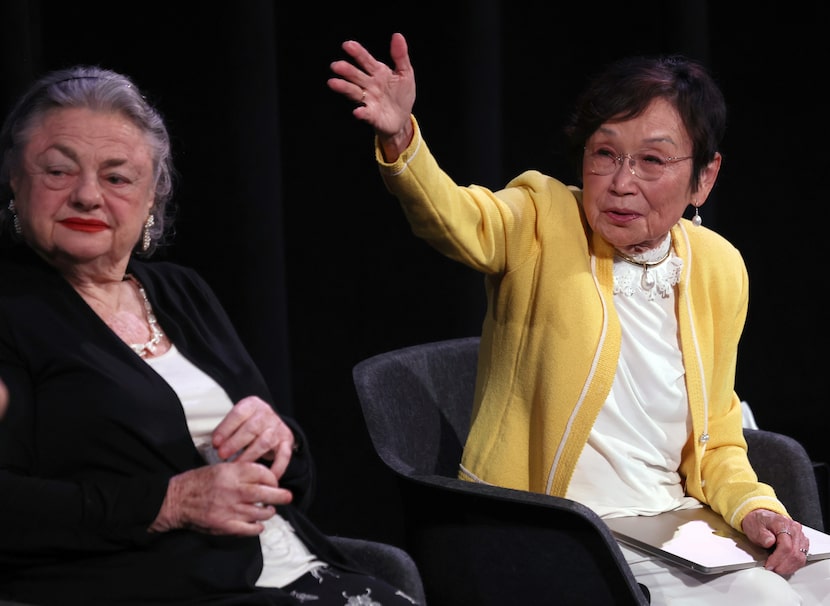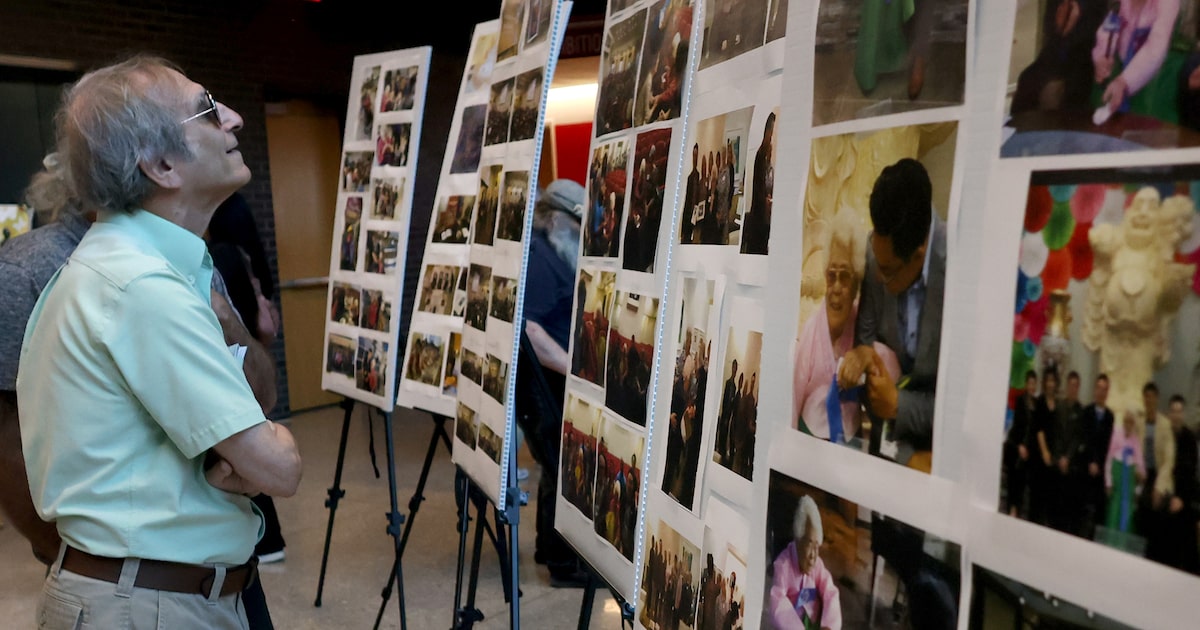At the Dallas Holocaust and Human Rights Museum last week, a group of people gathered around a small exhibit commemorating the life of Grandma Lee Ok-seon, who was one of the many victims of sexual slavery during World War II.
Comfort women, as they were called, were forced into sex trafficking by the Imperial Japanese Army in the 1930s and 1940s, according to the Association for Asian Studies. Comfort women were mainly Korean and Chinese, but also included Japanese women and those from other countries.
The subject, despite the euphemism “comfort women,” deals with dark stories of sexual violence, which a lot of people are not comfortable talking about. But it is important to spread awareness as it is a human rights issue, said Sinmin Pak, the founder of Unforgotten Butterflies.
The group, which is committed to raising awareness about sex trafficking, organized the event to recognize and honor the lives and struggles of comfort women.
Breaking News

Holocaust survivor Rosian Zerner (second from left) speaks of the time she escaped captivity as fellow panelists Rick Halperin (left) of SMU, retired professor Bonnie Oh (third from left) and William Moalem, a Shanghai Japanese prison camp survivor, listen. The panel discussion was a part of a presentation to acknowledge International Memorial Day for “Comfort Women” which was held at the Dallas Holocaust Museum on August 14, 2025.
Steve Hamm / Special Contributor
The event started with a photo exhibit, followed by a keynote address by Bonnie Oh, a retired professor of Korean Studies at Georgetown University, and ended with a panel discussion on the importance of learning about the history of comfort women and other historically significant topics.
Recognizing the struggles of the past
“People think comfort women is a kind of a messy issue, a dirty issue, something to be ashamed of, something to be hidden in the closet,” she said.
Oh said even if it is a difficult issue to get into, it still needs to be talked about.

Ms. Lee Dasol listens intently to a speaker after her presentation of a piece of original poetry written in Korean and translated to English by Sinmin Pak. The presentation to acknowledge International Memorial Day for “Comfort Women” was held at the Dallas Holocaust Museum, 300 N. Houston Street in Dallas, on August 14, 2025.
Steve Hamm / Special Contributor
“Whenever we’re speaking up for comfort women, it’s all about speaking up for the people who do not have a voice and who are marginalized,” said Pak.
Lee Ok-seon died in May at age 97. With her passing, only a handful of survivors are left.
“Our time with them is so precious,” Pak said.
A war against females
Historically, women have been targeted for sexual violence during war, according to a factsheet by UN Women. The factsheet said it is not just an action of a rogue soldier, but in many cases, a deliberate act of warfare.
Rick Halperin, director of the Southern Methodist University Human Rights Education Program, who moderated the panel discussion, said during World War II, all sides committed crimes.
Females have been and remain targets in a war from time immemorial, he added, citing the example of the mass rape of German women by Soviet soldiers, comfort women, and more such instances, including by American soldiers.
During the panel discussion, a member of the audience stood up and asked: “What can we do now to honor and to help prevent this from ever happening again?”
Rosian Zerner, a survivor of the Holocaust who was a part of the panel, said during the Holocaust many women were abused and it took them decades to come out and talk about the violence they faced.
She said what happened in the past is a memory that will help guide humans to prevent anything like that from happening in the future.

Dr. Bonnie Oh, retired Georgetown University professor, right, gestures to acknowledge the work done by program organizer Sinmin Pak as Holocaust survivor Rosian Zerner shared the stage at the conclusion of a panel chat as part of a discussion to acknowledge International Memorial Day for “Comfort Women” which was held at the Dallas Holocaust Museum, 300 N. Houston Street in Dallas, on August 14, 2025.
Steve Hamm / Special Contributor
A human rights issue
Another member of the audience, who shared her experience of fleeing her country that was under Russian occupation, talked about the need to keep spreading awareness about these topics because using sexual slavery and rape as a weapon of war is happening all over the world, even today.
“We have to learn the history so that we can recognize when something is not right,” Pak said.
She said her hope is for average people, like herself, to speak up on behalf of the people who have endured sexual violence.
“This is a human right and women’s right issue that we should not overlook,” Pak said, referring to the pains endured by the comfort women. “We cannot let this part of history just die out or be erased or revised or whitewashed.”
The Dallas Morning News reached out to the Consulate-General of Japan in Houston for a comment and they declined. The consulate directed The News to information about the agreement between Japan and the Republic of Korea on the Ministry of Foreign Affairs of Japan’s website.
